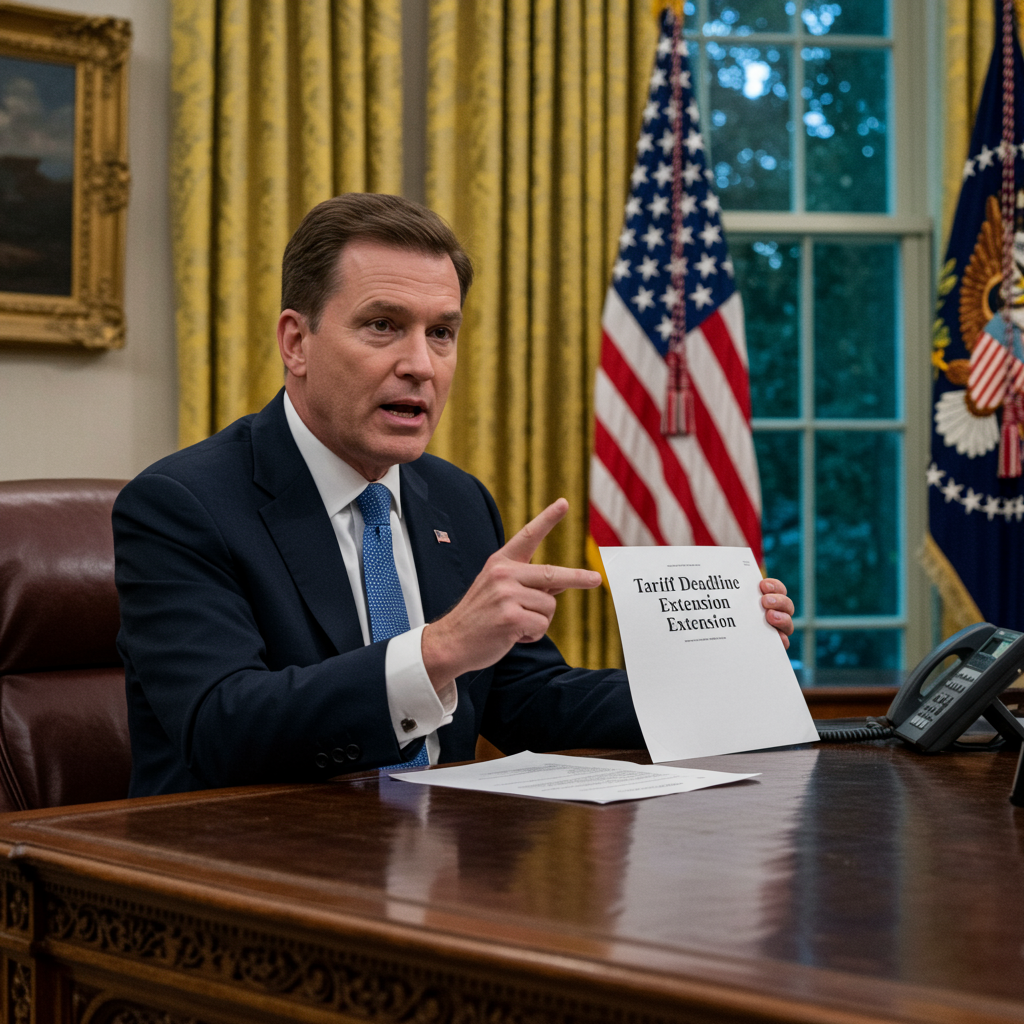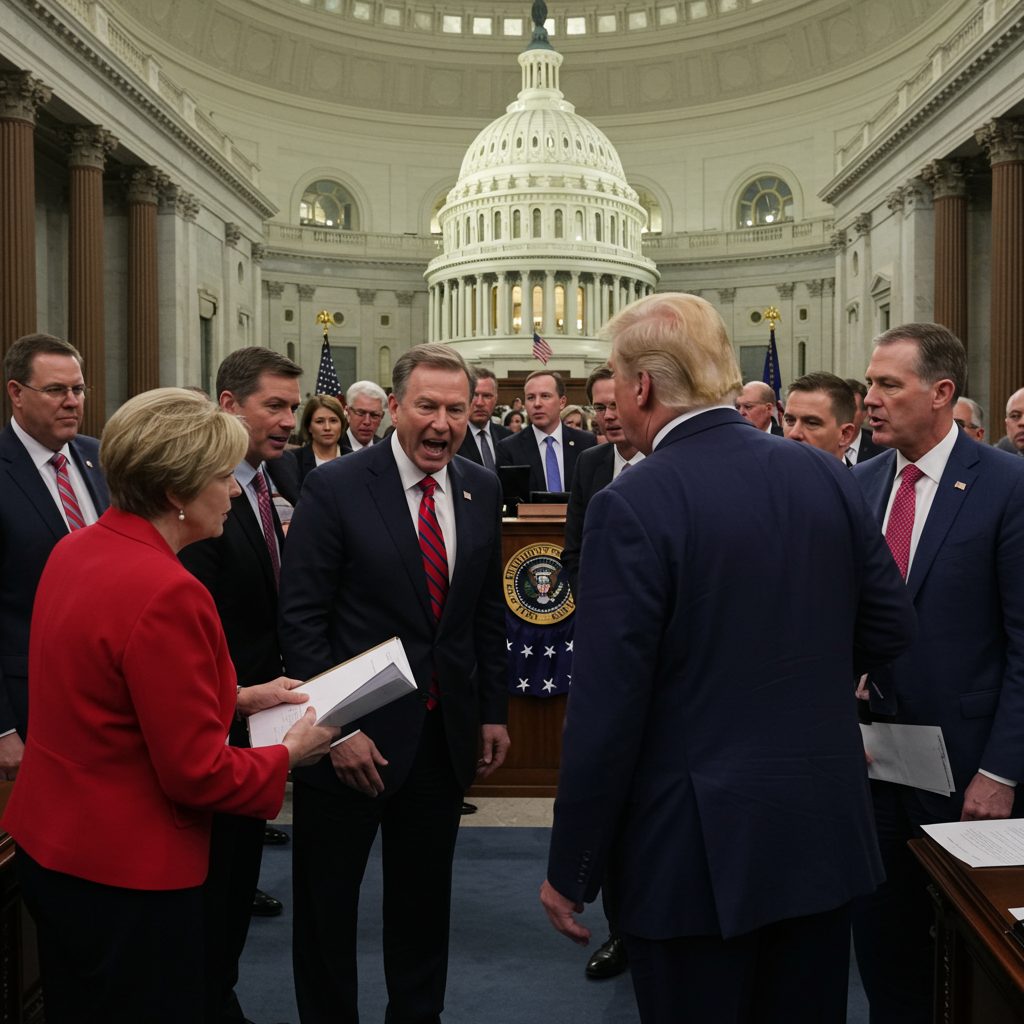A significant internal debate is fracturing the Make America Great Again (MAGA) movement, centered on former President Donald Trump’s potential decision regarding U.S. military involvement in the escalating conflict between Israel and Iran. This division pits the core “America First” principle of avoiding foreign entanglements against traditional Republican hawkishness and strong support for allies like Israel.
At the heart of the tension is the question of whether the United States should consider military strikes against Iran, potentially including actions targeting its nuclear program. This prospect has ignited passionate arguments among prominent figures within the MAGA sphere and among Trump’s dedicated base.
The “America First” Resistance to Intervention
A substantial part of Trump’s base, drawn to him initially in 2016 and solidified in subsequent years, rallied behind his promise to end “stupid endless wars” in the Middle East. For this faction, often aligned with isolationist views, potential U.S. military action against Iran is seen as a fundamental betrayal.
Voices like former Fox News host Tucker Carlson, former Trump senior adviser Steve Bannon, and Congresswoman Marjorie Taylor Greene have been vocal critics of potential intervention. They argue that deploying American resources and risking lives in another overseas conflict runs counter to the “America First” philosophy, which prioritizes domestic concerns like the economy, border security, and cost of living.
Republican strategist Sarah Longwell, who studies the movement, suggests that foreign policy is one of the biggest issues currently creating fractures within Trump’s base. She argues that a U.S. strike on Iran would be perceived as an “unforgivable sin” by many who supported Trump specifically because they believed he would be an anti-war president. This sentiment reflects a weariness with post-9/11 military interventions, drawing lessons from experiences in Iraq and Afghanistan. Some critics, like Bannon, have even likened the push for intervention to the rationale used for the Iraq War.
The Pro-Interventionist Stance
Conversely, other influential figures within the Republican party and close to Trump advocate for strong U.S. support for Israel, arguing that confronting Iran is necessary for national security and regional stability.
Prominent proponents of intervention include Senator Lindsey Graham and Fox News host Mark Levin. They view Iran as a major destabilizing force and an existential threat, particularly if it acquires nuclear weapons. These figures argue that this moment presents a critical, perhaps fleeting, opportunity to neutralize Iran’s nuclear ambitions and weaken the regime. Levin, for instance, passionately contends that decisive action isn’t a “Forever War” but a necessary step for self-defense against a dangerous adversary. Graham has urged Trump to be “all in” in supporting Israel.
Trump’s Position and the Internal Pull
Caught in the middle of this debate is Donald Trump himself. His past rhetoric strongly condemned foreign wars, a message central to his political brand. During his 2024 campaign, he explicitly pledged to measure success by “wars that we end, and perhaps most importantly, the wars we never get into.”
However, Trump’s stated position on Iran is unwavering: “Iran cannot have a nuclear weapon.” This singular focus drives his approach. While U.S. and Israeli officials have stated the U.S. has not directly assisted Israel in specific strikes against Iran (though it has helped defend Israel from Iranian attacks), Trump has also hinted at potential actions, even mentioning the possibility of using “massive bunker-buster bombs” as leverage.
Trump has publicly downplayed the significance of the split within his base, suggesting that while some may be unhappy, others are pleased, including those “outside of the base.” He has also pushed back against vocal critics like Carlson, labeling their views “kooky.”
Sources suggest Trump is acutely aware of the competing voices, ranging from influential online personalities to senators and media figures. While his administration may deny direct influence from critics on decision delays, many observers believe he is indeed swayed by the feedback from his base and key allies. Ultimately, Trump asserts that he alone decides what “America First” means, navigating the conflicting pressures to maintain his anti-war image while addressing the perceived threat from Iran and supporting a key ally.
Impact and Outlook
The debate highlights a fundamental tension within the evolving Republican coalition under Trump. While some polls suggest a significant portion of Trump voters do support aiding Israel, the vocal opposition to entanglement from influential MAGA figures underscores the fragility of the coalition on foreign policy matters. Longwell’s analysis suggests that moving forward with significant intervention could risk alienating a core part of his base, potentially “shattering” a key element of his political strength built on the promise of avoiding “forever wars.”
As the conflict between Israel and Iran continues, Trump’s eventual decision will not only shape U.S. foreign policy in the Middle East but also serve as a critical test of the “America First” doctrine and the unity of the MAGA movement itself.




